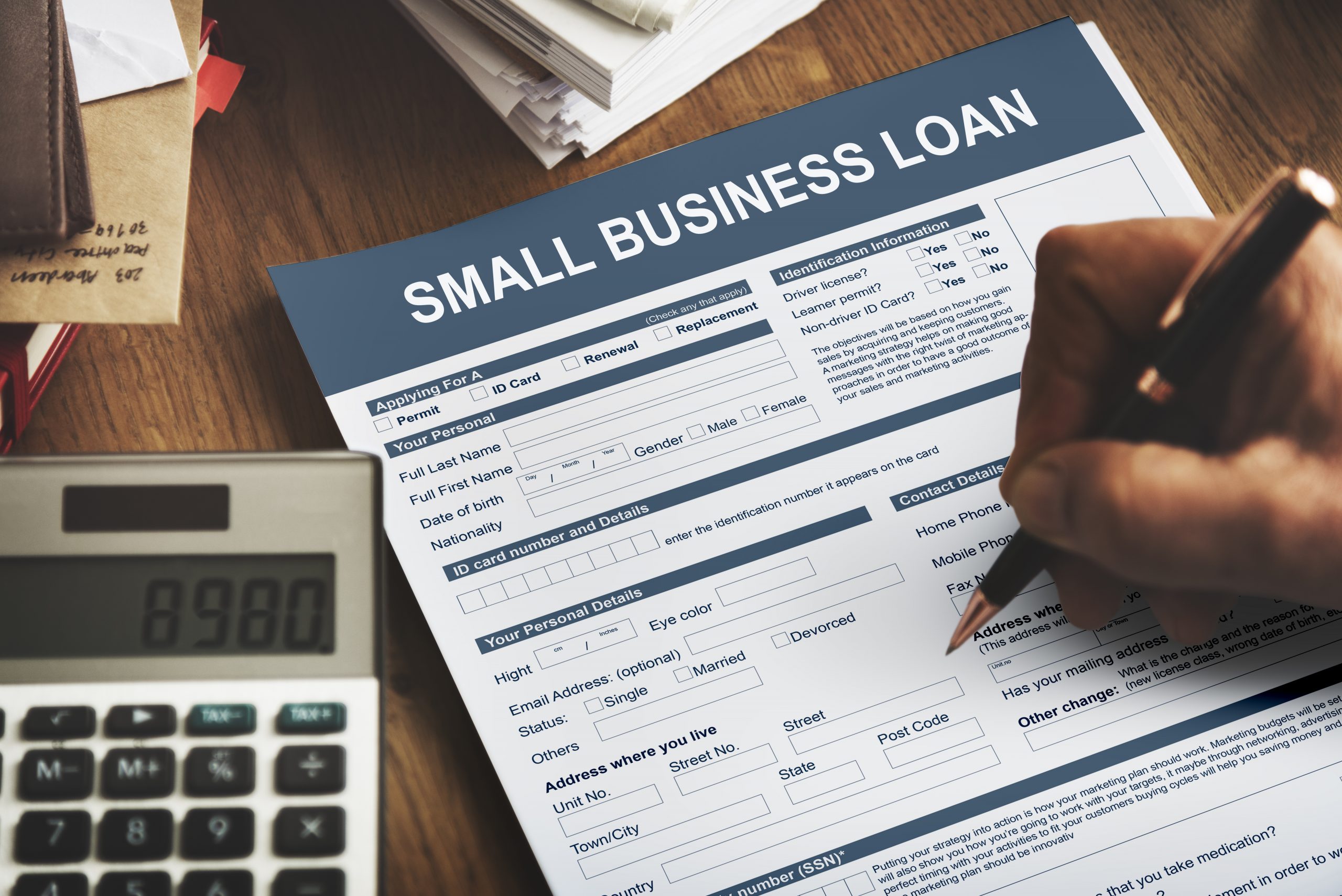According to the National Small Business Association (NSBA), 99.7% of all employer firms in the United States are made up of small companies. The 2017 Year-End Economic Report released by the NSBA shows that 73% of small businesses were able to obtain adequate financing. However, that also means more than one-quarter had a problem getting the funding they needed.
Of those that had inadequate financing, around one-third of the small firms reported being unable to grow or expand their operations. Other negative effects experienced by such companies included being unable to finance increased sales or additional inventory needed to meet demand, as well as having to make the difficult decision to reduce the number of their employees or reduce their benefits.
For many small businesses, business loans are an essential financing tool to maintain or expand their operations. The money can be used to take care of different kinds of business expenses, such as payroll, rent, and inventory. Unfortunately, not all interested business owners qualify for small business loans. Why is that? Below, we look at 6 factors that keep entrepreneurs from getting a small business loan.
1. Poor or inadequate credit history
When you apply for a business loan, many lenders look at your credit history, and even though you are borrowing money for business use, lenders will look not just at your business credit score, but at your personal credit score as well to determine how creditworthy you are. If your credit history shows that you are not diligent when it comes to paying back debts, your application might get declined.
Having credit issues does not mean a person is irresponsible; many people have a poor credit history because of things that are beyond their control, such as illness or divorce. Nevertheless, having a credit score below 700 can be a roadblock when it comes to getting small business loans. Once your score rises above 720, however, your chances of being approved for a loan and getting a good interest rate also rise dramatically.
If you’re one of the entrepreneurs having a hard time qualifying for loans due to your spotty credit history, rest assured that this barrier is not permanent.
To have a better idea of how lenders see you, get copies of your business and personal credit reports. Different credit reporting companies sometimes have different data, and different lenders look at different reports, so get a copy from all the major reporting agencies to cover all your bases.
Each year, you can request a free copy of your personal credit report from each of the three major reporting agencies (Experian, Equifax, and TransUnion). For your business credit report, meanwhile, you can get a copy from Experian, Dun & Bradstreet, and Equifax.
If you have been attentive to all your financial obligations but still have a low credit score, the problem might just be due to a minor clerical error, so check the reports meticulously to see if there are any inaccuracies. If you find an error, send the company a letter requesting for the error to be corrected.
Meanwhile, if there really were lapses in your efforts to pay bills and debts in the past, you can improve your credit score over time by paying off your existing debts, paying bills on time, and resolving tax liens and late payments.
On the other hand, if your problem is not so much poor credit, but lack of credit, you can build up your business credit by asking your creditors and suppliers to report your payment history to the major reporting agencies. You can also try asking your establishment’s landlord or getting small loans first then paying them off on time.
If you need a sizable business loan right away and cannot wait for your credit score to improve, you can get funding from alternative lenders that do not care much about the borrowers’ credit scores, preferably while you work to repair your credit profile.
2. Insufficient cash flow
Cash flow — how much money you have left over each month, after paying all expenses — is another major factor when it comes to small business loans. Lenders will look at your cash flow to gauge the health of your company and the likelihood that you will be able to pay them back in full and on time. Limited cash flow can therefore keep you from getting the loan that you need.
Lenders use the debt service coverage ratio (DSCR) to determine how much a loan applicant can afford to borrow. To calculate your DSCR, divide your monthly free cash flow by the monthly loan payment. So, for example, if you have $10,000 in free cash flow and your monthly payment is $7,500, then your DSCR is 1.33.
A DSCR of 1 means your cash flow is equal to the monthly loan payment; a ratio below 1 indicates that your debt is greater than your cash flow and that your loan application will be denied.
While some lenders consider a ratio of 1 as acceptable, most require at least 1.25 and prefer a score above 1.5.
Knowing your ratio enables you to determine if you need to boost the financial standing of your business first before approaching lenders. If so, you can look for ways to increase revenues and reduce expenses. By knowing your ratio, you can also figure out how much to borrow to increase the odds of getting approved.
If you’re not sure of your business’s current financial position, you can consult a financial planner for help.
3. Not having a solid plan for your business
Many small businesses only have an informal business plan and some don’t even have any plan at all.
Unfortunately, not having a solid business plan can get in the way of securing a business loan. Lenders want to do business with entrepreneurs who have definite plans, not those who only have half-baked ones.
If you still have not made a comprehensive plan for your business, start now — before submitting any loan applications. Spend the time and effort needed to come up with a carefully considered document discussing your company, your market, and the products or services you provide, as well as the financial information and projections. If you need help, you can ask a business plan expert to evaluate if your plan would be appealing enough to lenders.
It also pays to be clear about the kind of loan you want, how much you want to borrow, and how you intend to use the money. Being specific about these things can help persuade the lenders that you will use the funds wisely and that you have a concrete idea on how to grow your company using the money that you will receive.
So instead of just borrowing $200,000 to use as working capital, you can break it down and say you need $50,000 to buy additional furniture, $80,000 for inventory, $20,000 for marketing, and $50,000 to hire additional workers.
4. Being disorganized with your records and documents
Being sloppy and disorganized in your bookkeeping can make things difficult when it’s time to apply for a small business loan, so avoid practices such as inconsistent filing of tax returns and mixing business and personal bills.
If you find keeping organized financial records yourself challenging, consider hiring a professional bookkeeper or accountant, or purchasing business finance software. In any case, maintaining good records will help you not just during tax time or when you need a loan, but will enable you to always have an accurate view of your company’s financial health.
When it comes to business loans, make sure you have all the needed paperwork ready before sending in your loan application. Not submitting all requirements can prolong the processing time of your application and can even get your application rejected.
Some of the documents typically required by lenders include:
- business plan
- collateral
- balance sheets
- profits and loss statements
- income tax returns
- personal and business bank statements
- loan history
- accounts payable and receivable
- legal papers, such as business licenses and registrations
Another thing that can get your application declined are careless mistakes, such as missing information or conflicting entries. Therefore, make sure to fill out the application correctly and completely, and review everything carefully before submitting.
5. Lack of collateral
Some lenders — especially traditional ones such as banks and credit unions — evaluate a loan applicant’s ability to repay by requiring two sources of repayment: the company’s cash flow and a secondary source, which is usually collateral.
These lenders want collateral to back the loan, even if the borrower has a good debt service ratio and a high credit score.
Collateral makes the lenders comfortable because they know that if needed, they can sell the collateral to get their money back. Having an asset on the line also encourages borrowers to pay back the loans. In addition, an entrepreneur willing to back his loan with assets also tells lenders that the entrepreneur has enough faith in his skills and his business to risk losing an important property.
And not only do lenders want collateral, they want the right type of collateral. It has to be easy to value and also easy for the lender to sell in case the borrower fails to make payments.
The collateral can be in the form of business or personal assets, such as a real estate property or bank deposits. For some kinds of loans, the equipment and other assets you will purchase with the borrowed funds will also act as collateral.
Aside from collateral, many lenders also require business owners to sign a personal guarantee. This guarantee states that if ever the business fails to pay back the loan, then the borrower is personally liable. This is the reason why lenders place a high value not just on business credit score, but personal credit score as well.
6. The nature and age of your business
Lenders consider some types of businesses as riskier than others, so the nature of your company can affect your odds of getting a small business loan. If your application does get approved, you may get a higher interest rate because of the perceived risk.
How long your company has been in business also affects your chances of getting a loan and the interest rate you get. Banks and other conventional lenders are unlikely to lend money to businesses that are less than two years old.
Having a business that has been operating for less than two years does not mean you’re completely out of luck, though. Nowadays, there are many alternative lenders willing to lend money to businesses that have been around for only several months. The loan amount depends on the company’s monthly revenue.
Keep in mind, though, that businesses that are not yet considered established will get a higher interest rate, so avoid borrowing money in your first two years of doing business, if possible. If you really need a loan, make sure that the higher monthly payments won’t throttle your cash flow to the point of negatively affecting your business operations.
Bottom Line
Getting a small business loan can be a daunting task, especially if you’re borrowing from banks and other traditional lenders. Factors such as poor credit, limited cash flow, lack of a solid plan or collateral, disorganized business habits, and being a new business can keep you from qualifying for business loans.
The best time to prepare to borrow money is when you don’t need it yet, so you can determine and address any potential issues that will prevent you from being approved. If you start preparing early enough, you might be able to raise your credit score, improve an anemic cash flow, craft a detailed business plan, and assemble all the needed paperwork.
If one or more of the 6 factors listed above are keeping you from getting a traditional small business loan, know that you still have other options to get the funding you need. You can borrow from online lenders, peer-to-peer lending sites or merchant cash advance firms. These funding sources typically have fewer requirements and faster processing time.





